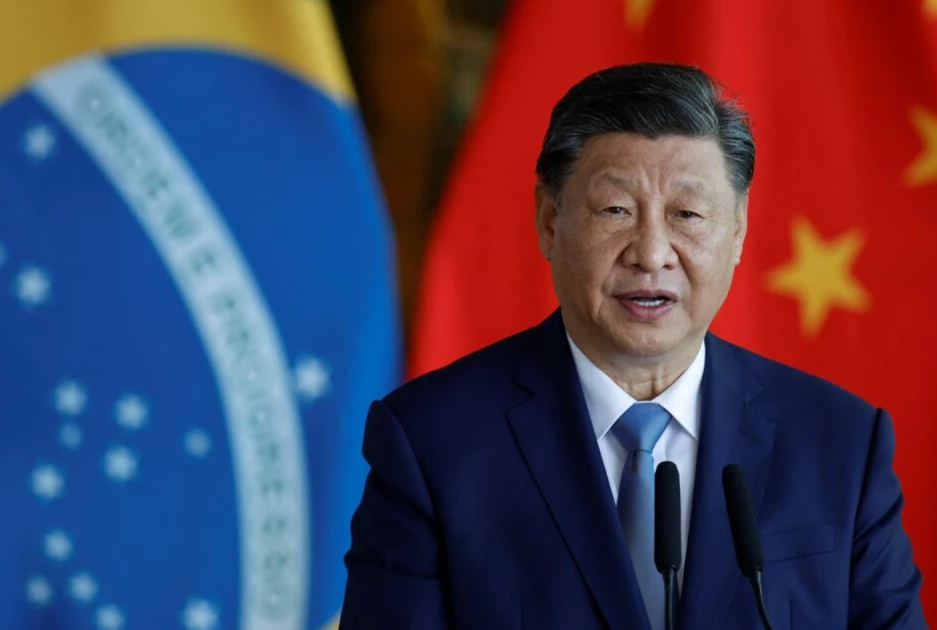EU presses China on trade and Ukraine in strained Beijing talks

The EU’s trade deficit with China reached a record €305.8 billion last year, and the bloc has taken several trade actions targeting Chinese products, including electric vehicles.
European Commission President Ursula von der Leyen on Thursday raised concerns over trade imbalance and the Ukraine war during a high-level but tense one-day summit with Chinese President Xi Jinping and Premier Li Qiang in Beijing.
The summit, which marked 50 years of diplomatic relations between the EU and China, was shortened at China’s request amid rising tensions over trade practices and geopolitical differences.
“We have very frankly and openly raised our concerns... on the trade, investment and geopolitical issues... We have partially identified solutions,” von der Leyen told reporters following the discussions. She spoke alongside European Council President Antonio Costa, who also attended the summit.
Von der Leyen said the talks with Xi and Li focused on addressing the EU’s growing frustrations with Chinese industrial overcapacity and restricted access for European businesses in China.
The EU’s trade deficit with China reached a record €305.8 billion last year, and the bloc has taken several trade actions targeting Chinese products, including electric vehicles.
Xi Jinping defended China’s position and cautioned the EU against restrictive policies.
“It is hoped that the European side will keep the trade and investment market open and refrain from using restrictive economic and trade tools,” he said, according to state media outlet Xinhua. He also urged the bloc to properly manage differences and avoid turning them into confrontations.
While von der Leyen acknowledged that China’s leadership had begun to engage on the issue of overcapacity, she stressed the need for tangible steps.
“We think increasing market access for European companies in China, limiting the external impact of involution, and reducing export controls are important steps forward,” she told Premier Li, according to a pool report.
Asked about a potential trade deal between the EU and the United States, von der Leyen said the EU was focused on reaching a negotiated outcome, but noted, “All other instruments are on the table until we have a satisfactory result.”
She emphasized that the EU’s dealings with China were not linked to its relationship with any other country. “Our relationship with China is of importance, but it stands on its own merits. It’s independent of the actions or issues we have with others.”
The leaders also issued a joint climate statement reaffirming their commitment to implementing new climate actions. The agreement highlighted cooperation in clean energy, methane control, carbon markets, and green technology development.
Despite the progress on some fronts, analysts noted that the mood around the summit was subdued. “Recently the situation has changed,” said Cui Hongjian, a foreign policy expert at Beijing Foreign Studies University.
“The EU has continued to compromise with the United States, which means that there is currently a lack of impetus for EU-China ties to become closer.”
In addition to economic issues, the EU also pressed Beijing to use its influence with Moscow to help end the war in Ukraine. “What’s important is that we have a ceasefire and negotiations at the table take place, that there is a true and genuine willingness to find solutions to end the bloodshed,” von der Leyen said.
Concerns over China's export controls on rare earth materials also featured in the discussions. The EU had faced supply chain disruptions in May after China’s new licensing rules took effect, temporarily halting some European car production lines.
Von der Leyen acknowledged some progress on that front, saying, “We need reliable and secure supplies of critical raw materials from China... we acknowledge China’s efforts on fast tracking licenses for critical raw materials, and we agreed to have an upgraded export supply mechanism.”
According to customs data, China’s exports of rare earth magnets to the EU rose sharply by 245% in June from the previous month, reaching 1,364 metric tons—though still 35% lower than the same month last year.
China’s foreign ministry defended its controls as being consistent with international standards and said it remained open to further cooperation on export regulations.
Despite von der Leyen describing her meeting with Xi as “excellent,” the summit concluded with little sign of a major breakthrough, leaving the future of EU-China ties hanging in the balance.
